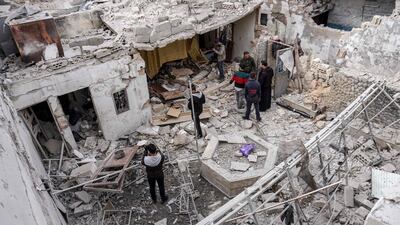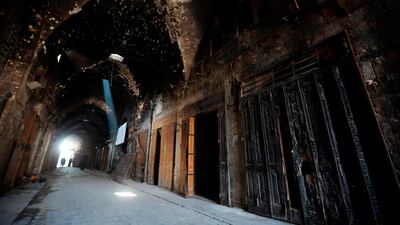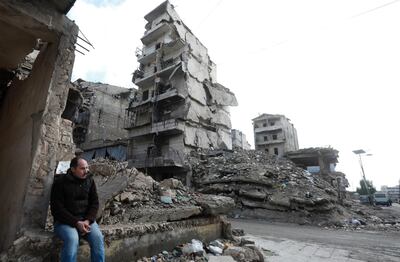European member states will meet in Brussels this week to raise financial aid for the 11.7 million Syrians in need of humanitarian assistance.
As President Bashar Al Assad consolidates his position after a brutal eight-year conflict, cracks have started to appear in the EU’s unified approach on how to deal with a regime accused of war crimes against its own population.
The Brussels Conference on Supporting the Future of Syria and the Region, between March 12 and 14, will need to move beyond securing pledges for humanitarian aid and deal with pressing issues including the struggling UN-led peace process, reconstruction aid and the demands of activists and women.
The EU High Representative for Foreign Affairs and Security Policy, Federica Mogherini, expressed confidence in the event's ability to advance the EU agenda in Syria.
"We have already had exchanges with the new UN special envoy for Syria on how to use this conference for defining how we can support a political transition in Syria and the UN role in this respect," Ms Mogherini said last month.
She said the meeting would also bring together local interests and represent “a Syrian week” on the global diplomatic calendar.
But EU member states, which together count as the world’s biggest aid donors, are more divided than they were a year ago.
Important states such as Italy, Austria and Hungary are run by anti-immigration governments, which are calling for the return of refugees through talks with Syrian authorities, regardless of prior objections.
Poland’s nationalist ruling party said it would be ready to finance homes and schools to help Syrians return.
Officially, the EU has made its reconstruction support conditional on a UN-led peace process.
France, Germany and Britain oppose allocating money for reconstruction that will fund Mr Al Assad’s cronies.
More than 270 people are under EU sanctions for their roles in the Syrian regime, including Syria’s interior minister and six other Cabinet members who were blacklisted this week.
In January, the EU Council sanctioned prominent businessmen involved in construction projects.
Humanitarian organisations complained that the Assad regime was channelling aid to loyalists and called on the EU to demand it reach all Syrians.
The European Commission secured $1.25 billion (Dh4.59bn) for assistance to civilians in Syria, but was unable to deliver all of it because of access problems.
Similar challenges can be expected to block distribution of the funds raised this year in Brussels.
Financial aid for reconstruction could be the last bargaining chip in the hands of the EU.
The success of a UN-led peace process that establishes a credible, inclusive and non-sectarian governance would pave the way for the EU’s full engagement in Syria.
Geir Pedersen, the fourth UN negotiator working to resolve the bloodshed in Syria, said that “there will be no sustainable peace in Syria unless all Syrians are included in shaping the future of their country".
But the chances of this taking place in the near future are dimming. Russia, Turkey and Iran have been mediating their own peace process and are placing themselves to reap the profits of Syria’s rebuilding deals, estimated by the UN to cost $388bn.
As a major backer of the Assad regime, Russia is putting pressure on western states and institutions to provide the much-needed capital for reconstruction.
But the EU fears profits will be pocketed by Assad loyalists, who are behind major luxury housing and entertainment projects in Damascus-area municipalities. More are scheduled for Aleppo and Homs.

The populist front inside the EU is pushing for investments in Syria regardless of whether or not this will benefit the house of Assad, under the token that it will enable more than one million Syrians in Europe to go back home.
Eighty per cent of Syrians are living below the poverty line and half of the population is unemployed, UN estimates show.
Socio-economic challenges are acute, particularly for women who have largely become primary breadwinners and face violence.
Delivering aid is also difficult and expensive, as the regime charges between $700 and $800 for the entry of Jordanian and Lebanese trucks.
If the EU wants to negotiate access to political prisoners and end forced conscription, arbitrary arrests and the seizure of property, it may first have to put its own house in order and negotiate as one with a president that is here to stay.


